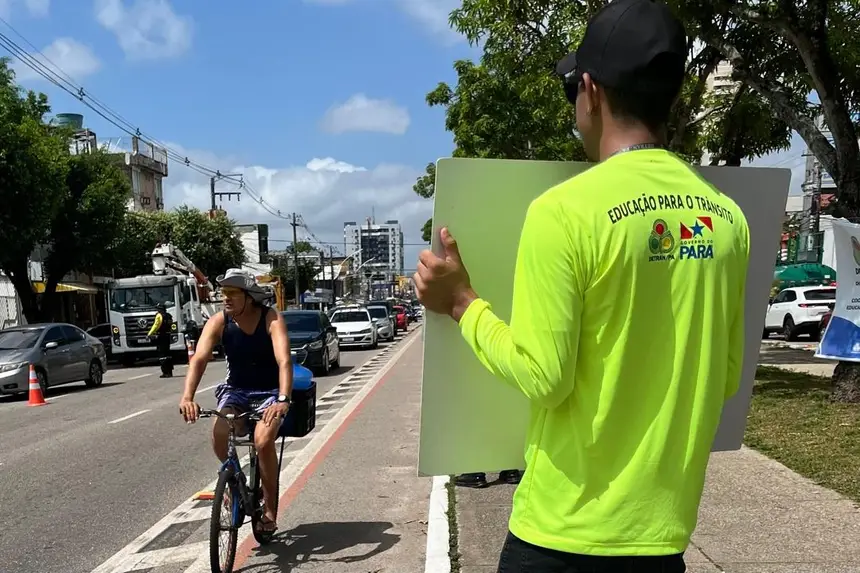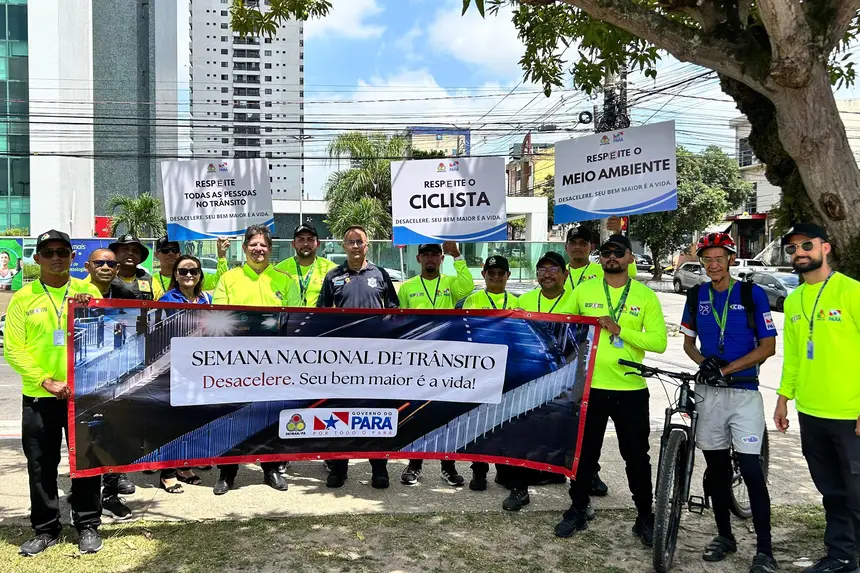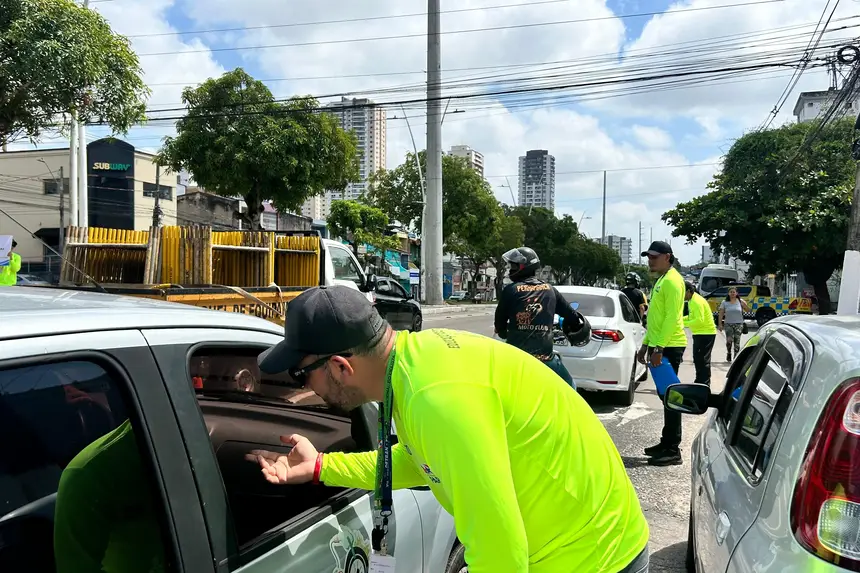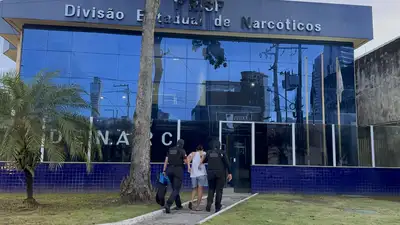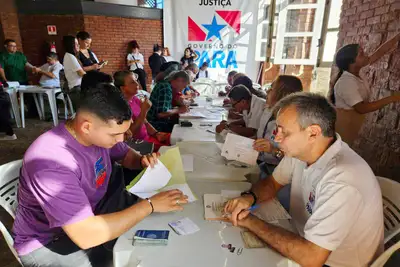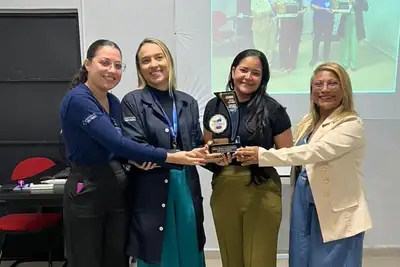World Car-Free Day and State Bicycle Day are commemorated in educational blitz by Detran
The initiative aimed to raise awareness among drivers and motorcyclists about the importance of respecting and taking necessary care with cyclists on the road.
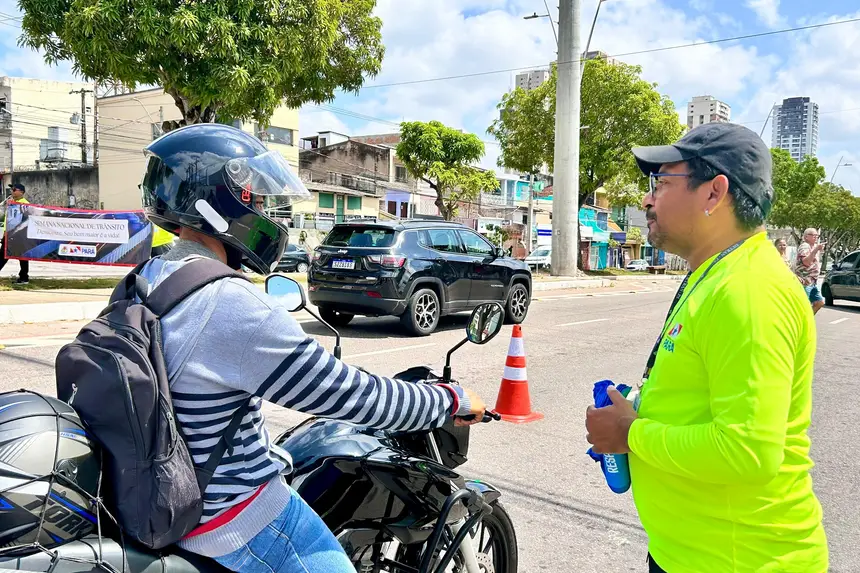
The State Traffic Department (Detran) held an educational action on the morning of this Monday (22) on João Paulo II Avenue in Belém, in commemoration of World Car-Free Day and State Bicycle Day. The initiative aimed to raise awareness among drivers and motorcyclists about the importance of respecting and taking necessary care with cyclists on the road.
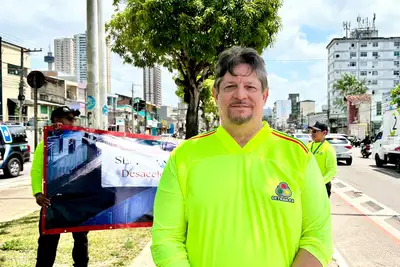
The technical-operational director of Detran, José Bento Gouveia, explained the objective of the action:
“Within the National Traffic Week, we are carrying out a awareness-raising action aimed at all traffic actors, with a special focus on care for cyclists. The cyclist is one of the most vulnerable road users, right after pedestrians, and needs extra attention. Our presence here aims to guide on the importance of respecting the spaces designated for them, such as bike lanes and cycle paths, so that we can build a safer and more humane traffic,” he emphasized.
During the mobilization, traffic education agents approached drivers and motorcyclists, reinforcing guidelines on the need to maintain a safe distance from cyclists, as well as the importance of reducing speed on high-traffic roads. The action also highlighted the benefits of using bicycles as a sustainable means of transport, which contributes to urban mobility and environmental preservation.
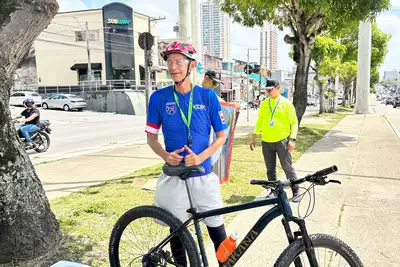
The director of the Pará Cycling Federation, Arnaldo Villar, emphasized the relevance of the action and the partnership between Detran and the entity: “The action in commemoration of World Car-Free Day and State Bicycle Day is an important opportunity to strengthen urban mobility. Cycling has ceased to be just a leisure activity and has become part of the city's transport system. Therefore, it is essential that we are integrated into the entire context, whether in bike lanes, cycle paths, guidance, or enforcement, always in partnership with Detran, to ensure more safety and appreciation for cyclists.”
Meanwhile, app motorcyclist Jobson Morais spoke about the importance of the initiative for the daily routine of those who circulate through the city. “This action is very cool. We who are in traffic daily witness risky situations and even accidents involving cyclists. The guidelines you are bringing help a lot because they raise awareness among those who make these mistakes. The traffic in Belém is very hectic, and actions like this are essential to improve coexistence, avoid accidents, and encourage more respect among everyone,” he noted.
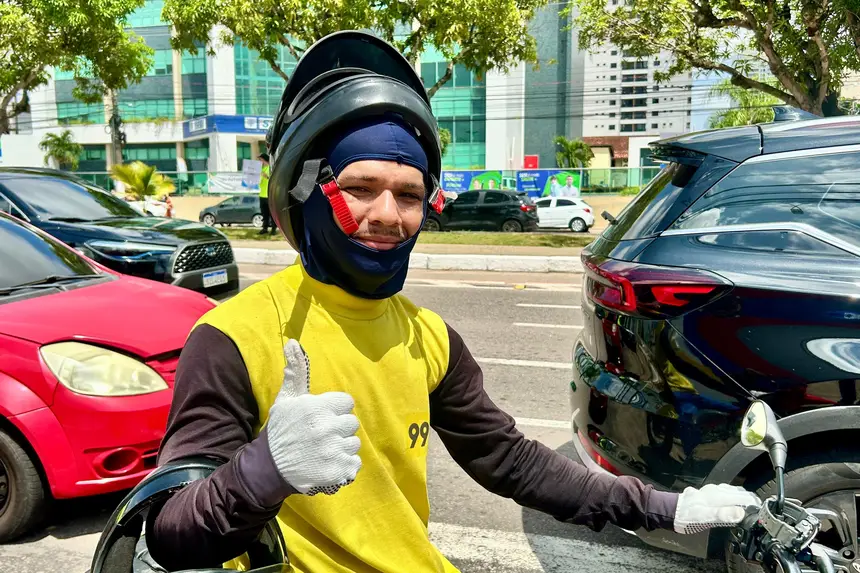
World Car-Free Day
World Car-Free Day was created to raise awareness among the population about the importance of rethinking transportation habits and adopting more sustainable means. Detran takes advantage of the date to reinforce alternatives such as bicycles and electric scooters, which have become allies in improving urban mobility, reducing pollutants, and decreasing vehicle flow on the streets of Belém.
In addition to promoting safer traffic, the use of these means of transport helps to relieve roads, facilitates movement in high-traffic areas, and contributes to the health and well-being of users. In Belém, electric scooters have been gaining ground and represent a new phase of modernization of urban and social mobility, ensuring accessibility, agility, and less environmental impact.
From a legal standpoint, the Brazilian Traffic Code (CTB) already regulates the use of electric bicycles. The legislation differentiates pedal-assisted bicycles from mopeds, establishing criteria for their circulation on roads, cycle paths, and bike lanes. According to Law No. 14.071/20, a moped is a vehicle with two or three wheels, with an internal combustion engine of up to 50 cc or an electric motor of up to 4 kW and a maximum speed of 50 km/h. An electric bicycle, according to Resolution No. 996/23 of Contran, is treated as a conventional bicycle if it meets requirements such as a maximum power of 1000 W, motor operation only with pedal assistance, absence of a throttle, and speed limited to 32 km/h.
This means that, when within these parameters, the electric bicycle can circulate in bike lanes and cycle paths without the need for registration, licensing, or plating. Outside of these conditions, it is equated to a moped, requiring a license in category A or ACC and plating.
“Encouraging the use of sustainable means of transport is a fundamental part of our commitment to safe and modern mobility in Belém and throughout Pará. Bicycles and electric scooters represent a viable alternative to reduce the number of polluting motorized vehicles on the streets and provide more fluidity to traffic,” emphasizes Bento Gouveia.
By highlighting World Car-Free Day, the agency draws attention to the need to increasingly integrate sustainable modes into cities. In urban areas, where mobility challenges are growing, the adoption of solutions such as electric scooters and bicycles demonstrates that it is possible to advance towards more efficient, inclusive mobility committed to the future.
Text: Brendo Freitas and Luís Azevedo - Ascom/Detran


